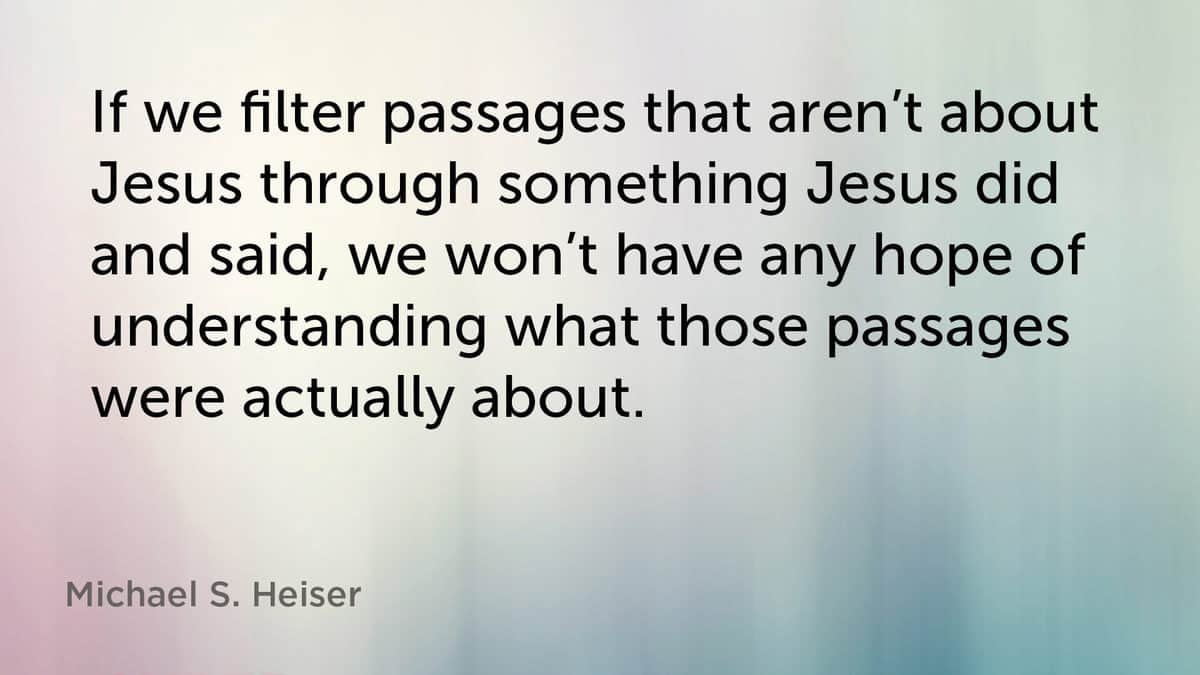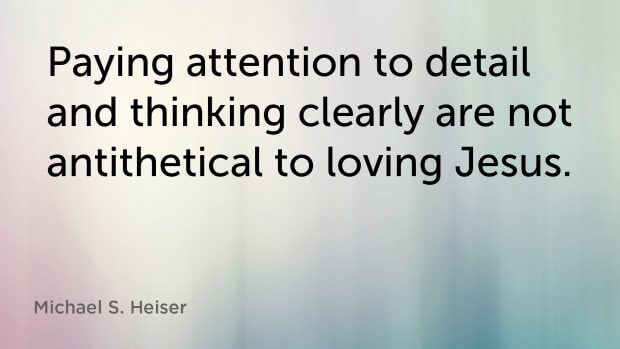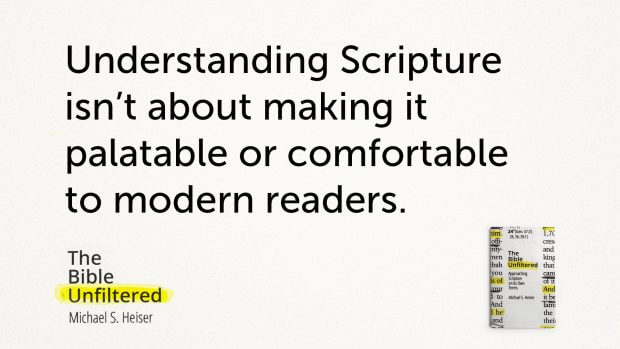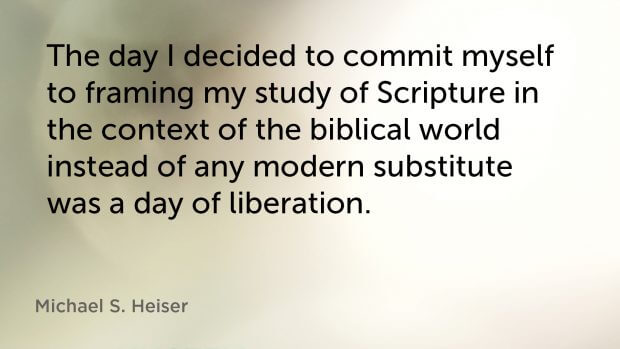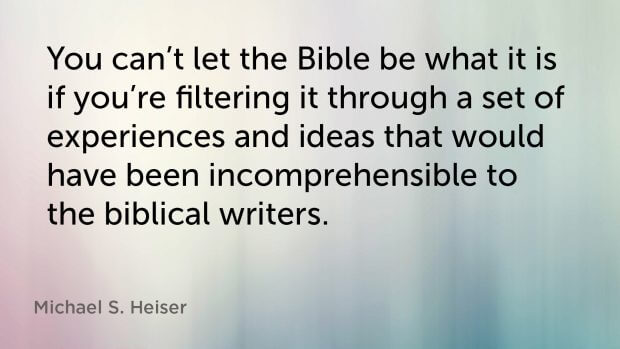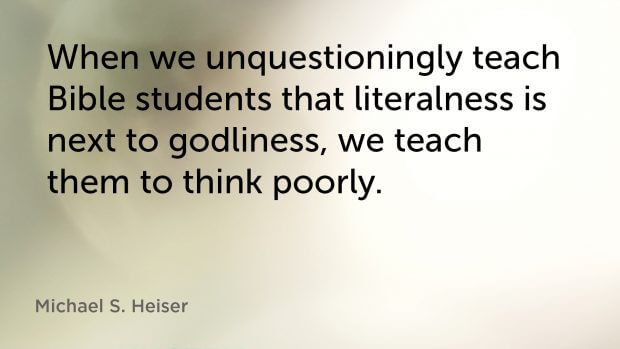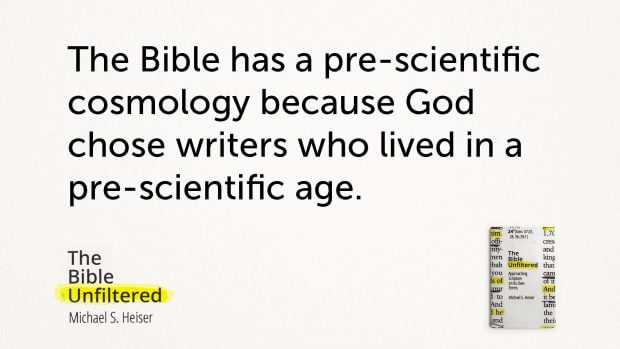The Bible is mysterious, surprising—and often deeply misunderstood. There are many passages in Scripture that communicate important ideas and events clearly and simply, transcending differences in language and context. But there are also many passages that are downright perplexing, unusual, or weird. Studying these challenging parts of the Bible requires us to connect to the context of the biblical writers.
In his bestselling work, The Unseen Realm, Michael Heiser revealed the supernatural worldview of the ancient world. In his newest book, The Bible Unfiltered, he takes on dozens of specific passages, revealing how understanding the original context of the Bible can illuminate, and inspire.
Here are 10 quotes from The Bible Unfiltered that challenge the way you study the bible:
The truth about serious Bible study is that it isn’t easy. It takes sustained time and effort, often measured in days, weeks, and months, to really grasp what a passage means (or probably means) and why. If Bible study doesn’t seem like work to you, you aren’t really doing it.
Sometimes we even use Scripture as an excuse to avoid addressing difficult Bible passages. We might appeal to Deuteronomy 29:29 when we encounter biblical passages that seem too confusing or weird. The problem is this verse doesn’t mean what its advocates think it means. There’s no Bible verse that discourages us from studying the Bible.
Reading the Bible is not where your engagement with the Bible ends. It’s where it begins. But over the course of my teaching career I’ve been dragged kicking and screaming to the realization that many Christians think the act of reading Scripture is to be equated with studying Scripture. That simply isn’t the case.
Paying attention to detail and thinking clearly are not antithetical to loving Jesus. Bible study is about learning what this thing we say is inspired actually means. Knowing what all its parts mean will give us a deeper appreciation for the salvation history of God’s people, and the character of God. Jesus is the core component of all that, but there’s a lot more to those things than the story of his life, death, and resurrection.
Understanding Scripture isn’t about making it palatable or comfortable to modern readers. It’s about discerning what the biblical writer believed and was seeking to communicate to readers who thought the same way.
People are taught to extrapolate what they read to some point of connection with the life and ministry of Jesus—no matter how foreign to Jesus the passage appears. If we filter passages that aren’t about Jesus through something Jesus did and said, we won’t have any hope of understanding what those passages were actually about.
It isn’t easy to put the biblical context ahead of our traditions. But if we don’t do that, we ought to stop talking about how important it is to interpret the Bible in context lest we be hypocrites. The day I decided to commit myself to framing my study of Scripture in the context of the biblical world instead of any modern substitute was a day of liberation.
All contexts—including the history of Christianity—that post-date the biblical world are foreign to the Bible. The right contexts for interpreting the Bible are those in which the Bible was written. You can’t let the Bible be what it is if you’re filtering it through a set of experiences and ideas that would have been incomprehensible to the biblical writers.
Too many Christian sub-cultures exalt the “literal” interpretation of the Bible, especially when it comes to creation and prophecy. But over-emphasis on biblical literalism has a cost. Literalism can become idolatry. When we unquestioningly teach Bible students that literalness is next to godliness, we teach them to think poorly.
The Bible is an ancient work inspired by God not to give us science, but to give us truth about things that can’t be put under a microscope, like the spiritual world, our spiritual need, and our spiritual destiny if we believe God’s plan for salvation. Those truths transcend science and aren’t dependent on it. The Bible has a pre-scientific cosmology because God chose writers who lived in a pre-scientific age.
* * *

